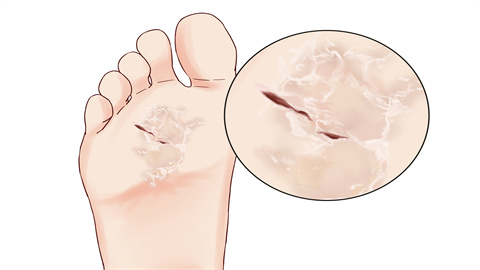What to Avoid to Alleviate Fissured Eczema
Generally, avoiding excessive cleansing and the use of alkaline cleansers, preventing excessive friction and squeezing, avoiding contact with irritants, refraining from washing with excessively hot water, and avoiding consumption of allergenic foods can help alleviate fissured eczema. If discomfort occurs, it is recommended to seek timely medical treatment. Detailed explanations are as follows:

1. Avoid excessive cleansing and frequent use of alkaline cleansers
Excessive cleansing and the use of alkaline cleansers can damage the skin's natural protective barrier, leading to increased dryness and sensitivity. Therefore, avoid using strongly alkaline soaps and detergents, opt for mild, non-irritating cleansers, and reduce the frequency of cleansing to preserve the skin's natural oils.
2. Avoid excessive friction and squeezing
Excessive friction and squeezing can worsen skin fissures and inflammation. In daily life, avoid prolonged skin friction, such as wearing tight clothing or frequent scratching. Additionally, avoid squeezing already cracked areas to prevent worsening of symptoms.
3. Avoid contact with irritants
Certain substances, such as metals and dust, are irritants that may trigger or exacerbate fissured eczema. Therefore, avoid contact with these substances whenever possible. When frequent contact is unavoidable, such as in work or daily activities, appropriate protective measures should be taken.
4. Avoid washing with excessively hot water
Using excessively hot water for washing can further damage the skin's natural barrier, increasing moisture loss and worsening dryness. Therefore, avoid bathing or soaking feet in very hot water; use water at a moderate temperature and keep bathing time as short as possible.
5. Avoid consuming allergenic foods
Certain foods, such as seafood and mangoes, may cause allergic reactions that worsen symptoms of fissured eczema. Therefore, avoid foods known to cause allergies. Maintaining a light and balanced diet can also help strengthen the skin's resistance.
When handling substances that may cause allergies or irritation, protective measures such as wearing gloves should be taken. Additionally, avoid prolonged exposure to direct sunlight or cold environments to minimize skin irritation.




